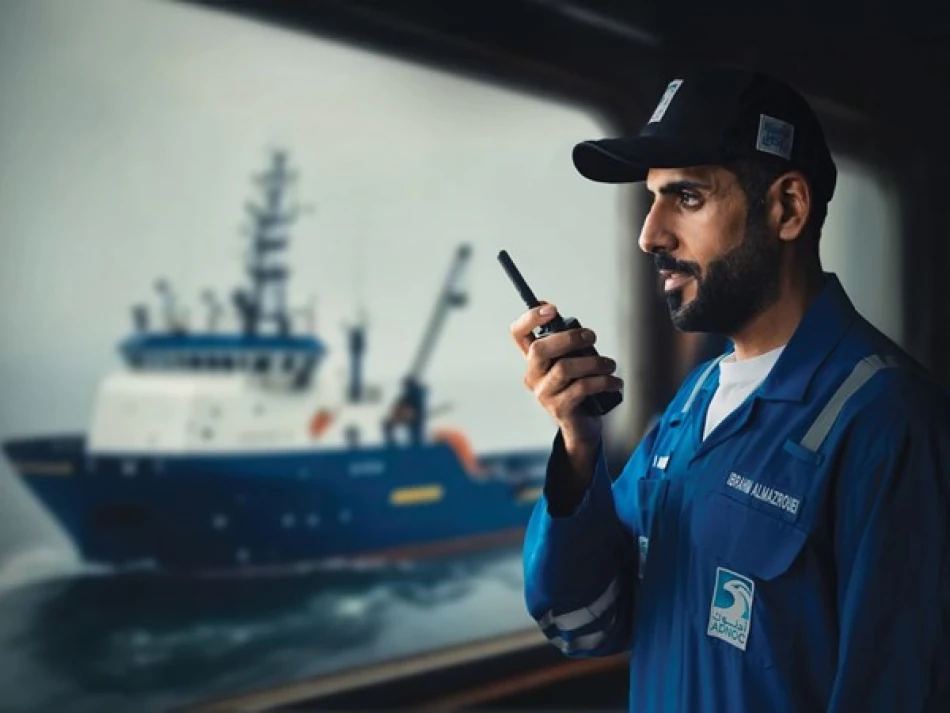
ADNOC Distribution Boosts Port Operations with Cutting-Edge AI Tech
UAE Sets New Global Standard with AI-Powered Smart Port Revolution
ADNOC Logistics & Services has successfully deployed the Gulf region's first AI-driven smart port solution, slashing ship processing times by 90% and positioning the UAE as a frontrunner in the global race to digitize energy infrastructure. The breakthrough technology reduces service delivery from three hours to just 45 seconds, promising $950,000 in operational savings by 2028.
Transforming Maritime Operations Through Artificial Intelligence
The innovative Port Management Information System (PMIS), developed by Innovez One, represents a quantum leap in maritime efficiency. By streamlining resource allocation and enabling real-time tracking of marine activities, the system has been deployed across ADNOC's major petroleum ports including Das Island, Zirku, Mubarraz, Ruwais, and Jebel Dhanna.
The numbers speak volumes about the transformation: berth utilization rates have increased by 20%, while ship operations management is expected to improve by 10%. With 3,000 hours saved annually, the system demonstrates how AI can revolutionize traditionally labor-intensive maritime operations.
Beyond Efficiency: Strategic Implications for Energy Logistics
This deployment signals more than operational improvement—it represents a strategic positioning move in global energy logistics. As international shipping faces mounting pressure to reduce emissions and improve efficiency, the UAE's early adoption of AI-powered port management could attract more shipping traffic and cement its role as a critical energy hub.
Captain Abdul Karim Al Masabi, CEO of ADNOC Logistics & Services, emphasized that the smart port solution confirms the company's commitment to harnessing AI technologies while continuing to invest in innovation to enhance operations and create added value for business and customers.
Global Context: The Smart Port Arms Race
The UAE's move comes as ports worldwide scramble to digitize operations. Singapore's Port Authority has invested heavily in AI-driven container management, while Rotterdam has pioneered autonomous shipping trials. However, the petroleum port focus gives the UAE a distinct advantage in the energy sector, where operational delays can cost millions.
Unlike general cargo ports, petroleum facilities require specialized handling protocols and safety measures. The successful AI implementation in this high-stakes environment demonstrates the technology's maturity and reliability, potentially accelerating adoption across other energy infrastructure projects.
Market Impact and Investment Implications
For energy traders and logistics companies, the UAE's enhanced port efficiency could translate into reduced operational costs and faster cargo turnaround times. This competitive advantage may influence shipping route decisions and strengthen the UAE's position in global energy trade networks.
David Yu, CEO of Innovez One, highlighted that the collaboration demonstrates the transformative power of AI technologies in the global energy logistics sector. By optimizing operational workflows, the system not only achieves efficiency but also contributes to sustainability goals, making UAE petroleum ports a global benchmark for smart operations.
Setting the Stage for Industry-Wide Transformation
ADNOC's continued adoption of innovative AI technologies reinforces its commitment to operational excellence and long-term sustainability, aligning with its growth strategy and efficiency enhancement in the energy logistics sector. This deployment likely represents the first phase of broader digital transformation initiatives across the UAE's energy infrastructure.
As global energy markets face increasing volatility and environmental scrutiny, the UAE's investment in smart port technology positions it to capture greater market share while meeting evolving sustainability demands. The success of this AI implementation may well become the template for petroleum ports worldwide, establishing new industry standards for operational efficiency and environmental responsibility.
Most Viewed News

 Layla Al Mansoori
Layla Al Mansoori






